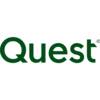
Navigating TRICARE Coverage for Urgent Care: What Active Duty...
If you’re new to being a member of TRICARE, you may have a lot of questions regarding your coverage and...
Read moreHelp patients book appointments with you on Solv. It's free!
7 instant-book locations






No more surprise bills. Solv is committed to making getting healthcare as easy as buying groceries at the store, including knowing the price of care upfront.

Help patients book appointments with you on Solv. It's free!
Antibodies can be detected in your blood via an antibody test, commonly known as a serology test. Antibodies are produced in the body in response to diseases such as COVID-19 or immunizations.
THE COVID-19 antibody test is also known as the SARS-CoV-2 antibody test, according to the FDA. COVID-19 is caused by the SARS-CoV-2 virus. This antibody test can determine whether you have antibodies to SARS-CoV-2 in your blood. According to the FDA, if you do, you have either been infected with COVID-19 or have recovered from it.
The COVID antibody test, according to the CDC, can indicate how well your immune system defends itself against the virus. It goes on to say that this test can also assist you with comprehending population-level protection.
According to the CDC, the major reason for antibody testing is to see if you have COVID-19 antibodies in your blood and have had a previous infection. The CDC warns that this test should not be used instead of viral COVID testing to detect if you have a current infection or if you are immune to SARS-CoV-2 after receiving the COVID vaccine.
A viral test can be used to diagnose COVID-19. A viral test can also be used to establish whether you are currently infected with SARS-CoV-2, according to the CDC.
A healthcare expert will take a sample from your nose or mouth during the viral test. A polymerase chain reaction (PCR) test or an antigen test is used to assess your sample.
According to the National Institutes of Health, a PCR test works by detecting the DNA or RNA of a pathogen or aberrant cells in a sample (NIH). According to the NIH, most viruses, including COVID-19, contain DNA or RNA.
A PCR test can diagnose COVID in its early stages, according to the CDC. According to the CDC, the results of these lab tests normally arrive within a few days.
According to the Massachusetts Institute of Technology, an antigen test works by looking for SARS-CoV-2 molecules on the virus surface. According to the CDC, these fast tests provide answers in a matter of minutes and can be done at home by a healthcare worker or by yourself. Solv has a directory that can help you discover COVID testing in your area.
According to the Massachusetts Institute of Technology, an antigen test works by looking for SARS-CoV-2 molecules on the virus surface. According to the CDC, these fast tests provide answers in a matter of minutes and can be done at home by a healthcare worker or by yourself. Solv has a directory that can help you discover COVID testing in your area.
According to the FDA, positive results from a COVID antibody test suggest that you have had a previous SARS-CoV-2 or COVID-19 infection.
Antibodies to COVID were not discovered in your blood if you had a negative COVID antibody test. A negative result, according to the FDA, could indicate that you have had a previous SARS-CoV-2 infection but your body has not yet produced antibodies, or that the level of antibodies produced by your body is too low to be detected by the test.
According to the National Institutes of Health, antibody tests can also be used to screen for antibodies to other disorders. Measles, mumps, hepatitis, mononucleosis, and varicella-zoster virus are among these disorders.
Antibody testing for these diseases may be recommended by your doctor to evaluate whether you are up to date on vaccines and require boosters, or to detect an autoimmune disease such as lupus. Antibody testing are occasionally required for school or work, according to the National Institutes of Health.
Many pharmacies, labs, and healthcare organizations provide the COVID antibody test. Use Solv's directory to find the best COVID testing services in your area.
According to the Centers for Disease Control and Prevention (CDC), the COVID-19 antibody test is available in urgent care centers, walk-in clinics, pharmacies, lab test providers, and hospitals. To find out if your healthcare provider offers the COVID antibody test, contact them directly or use Solv to discover a testing provider in your region. You may also schedule an appointment for the same day or the next day with Solv.
According to the FDA, COVID-19 antibody tests can tell you if you've had a previous COVID-19 infection. A diagnostic COVID test, on the other hand, can tell you if you're currently infected with COVID-19. If you want to find out if you have COVID-19, talk to your doctor about your options for diagnostic tests, or use Solv to find a COVID-19 testing center near you.
The COVID-19 antibody test, according to New York City Health, requires a blood sample. Your healthcare professional will draw blood from a vein in your arm or collect a short finger prick sample of your blood during the test. According to the National Institutes of Health, this examination normally takes no more than five minutes. After the results are returned, your healthcare provider will contact you to discuss them.
The COVID antibody test, according to the FDA, may result in a false negative, which occurs when the test fails to detect antibodies for SARS-CoV-2 despite the presence of antibodies. It goes on to say that if you got the COVID-19 vaccine and your body developed other antibody types in reaction to it, your test result may be negative. During your appointment, your doctor can go over the various limitations of COVID antibody tests with you in further detail.
No, even if you've been vaccinated against COVID-19, a semi-quantitative COVID-19 antibody test cannot indicate your level of protection, according to the FDA. It goes on to say that, while a positive antibody test can indicate the presence of an immunological response, more research is needed.
The cost of a COVID antibody test is determined by a variety of factors, including the provider's fees and if your health insurance covers some or all of the charges. Many health insurance are refusing to cover the cost of the COVID antibody test unless it is deemed medically necessary for diagnosis and treatment, according to the University of Rochester. Confirm the cost of the COVID antibody test with your healthcare provider.
The COVID antibody test, according to the CDC, may be excellent for you if you want to know if you've been exposed to COVID-19 before or if you have antibodies if you've already experienced the disease. You can't detect if you have COVID-19 by taking a COVID antibody test.

Updated on Nov 25, 2024
Solv has strict sourcing guidelines and relies on peer-reviewed studies, academic research institutions, and medical associations. We avoid using tertiary references.
Chickenpox Vaccine in Kansas
DOT Exam in Kansas
Ear Wax Removal in Kansas
Flu Shot in Kansas
Hepatitis Vaccine in Kansas
Measles Vaccine (MMR) in Kansas
Physical Exam in Kansas
Shingles Vaccine in Kansas
Sports Physicals in Kansas
Tetanus Shot in Kansas
Typhoid Vaccine in Kansas
Yellow Fever Vaccine in Kansas
A1C Test in Kansas
Allergy Testing in Kansas
Basic Metabolic Panel in Kansas
CMP Test in Kansas
COVID-19 Antibody Test in Kansas
Diabetes Test in Kansas
Diagnostic Test in Kansas
Flu Test in Kansas
H Pylori Test in Kansas
Hepatitis test in Kansas
Mono Test in Kansas
Pregnancy Test in Kansas
RSV Test in Kansas
STD Testing in Kansas
Strep Test in Kansas
TB Test in Kansas
Thyroid Test in Kansas
Vitamin D Test in Kansas
Tips, advice, news—your resource to stay healthy and safe while improving your experience with healthcare providers when you need them.